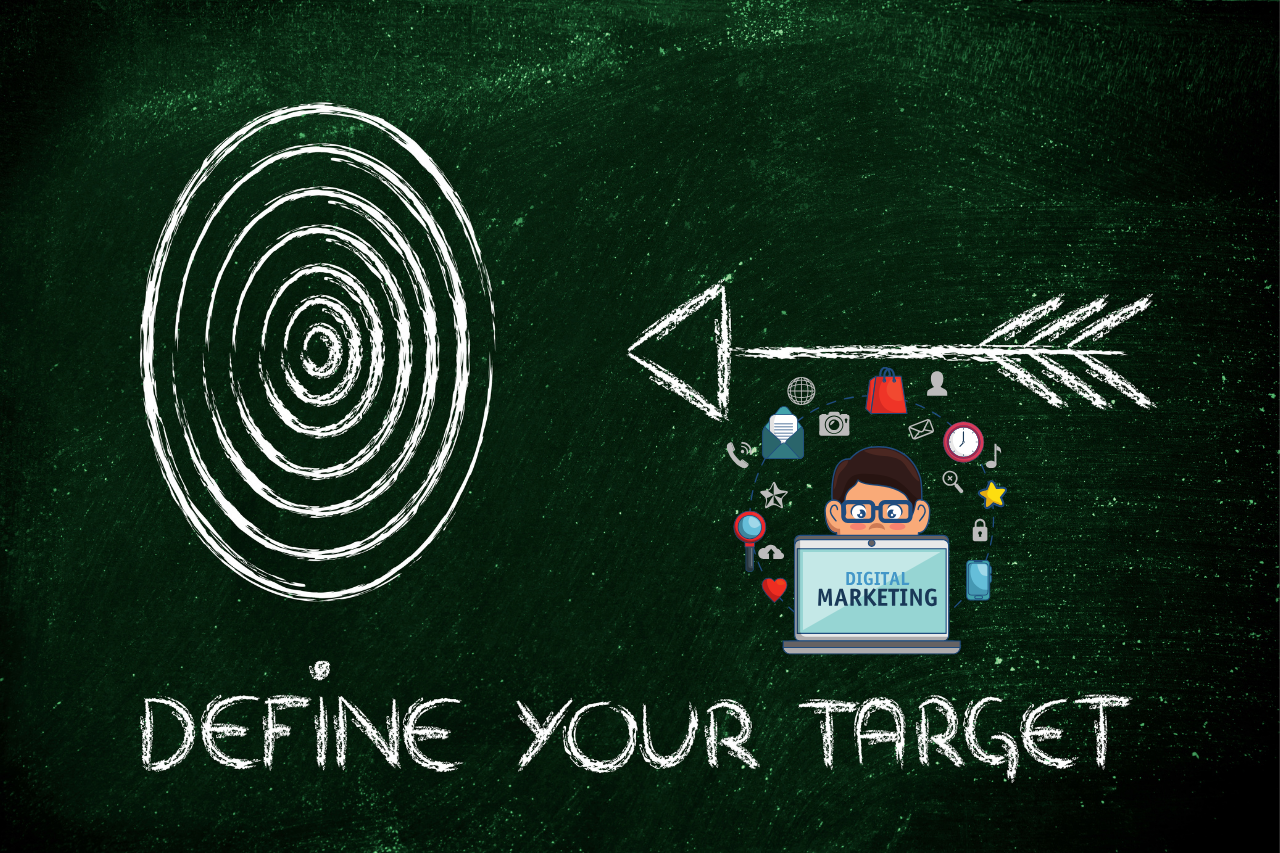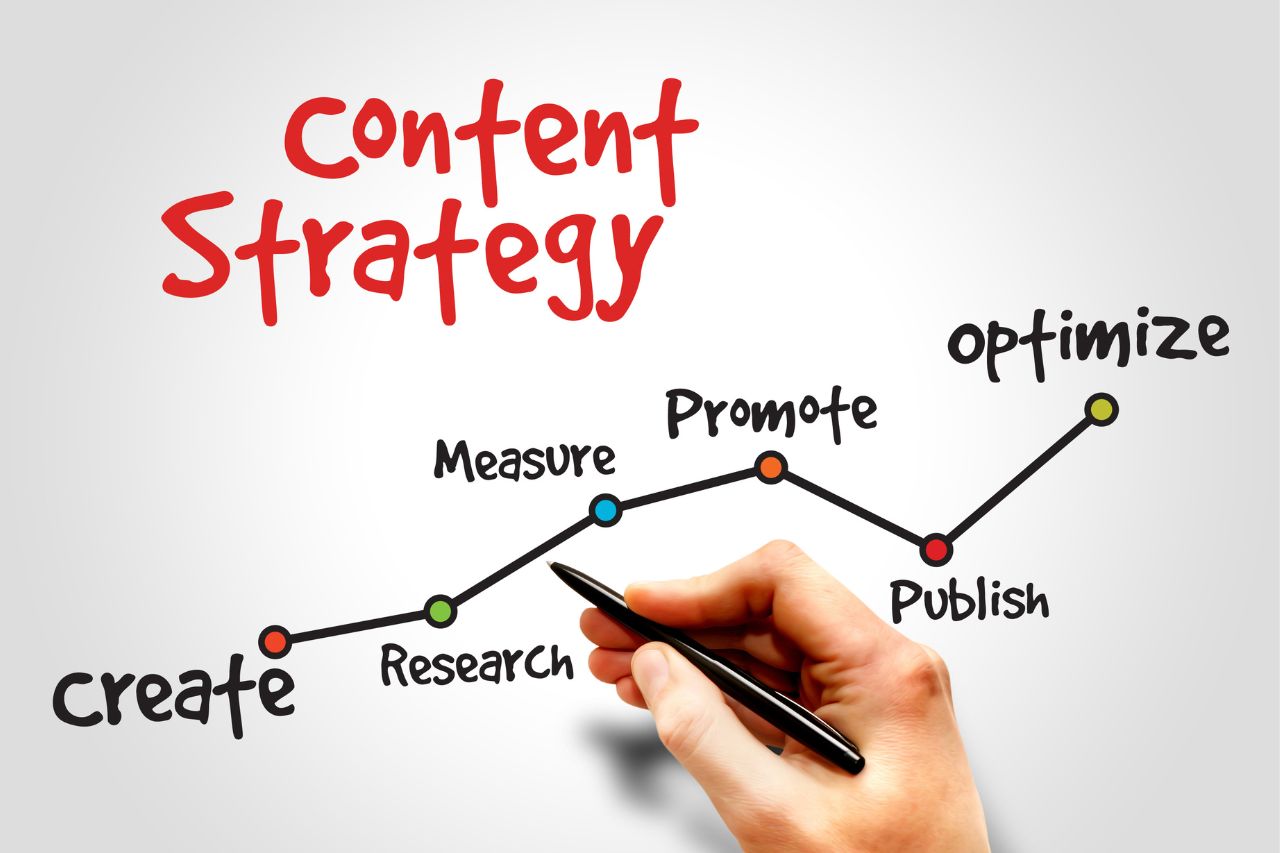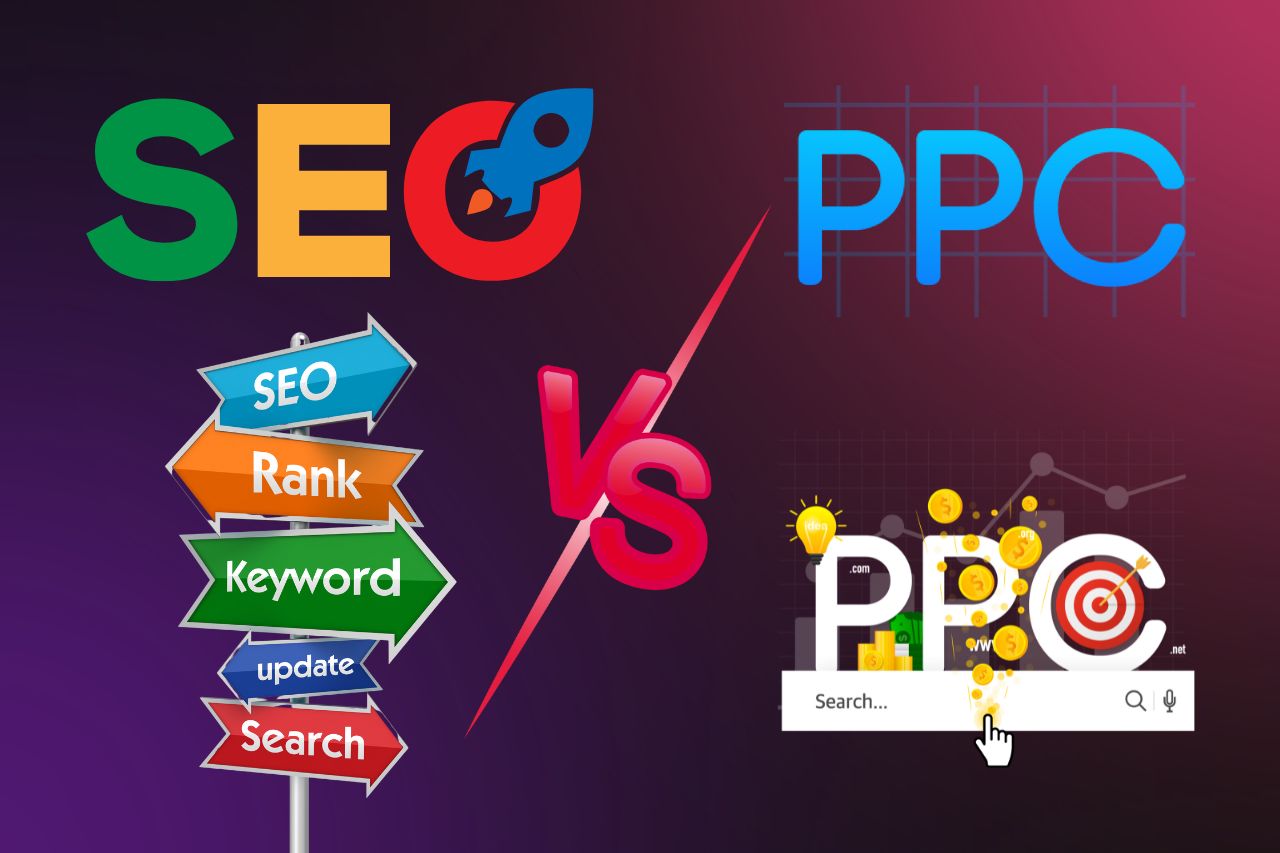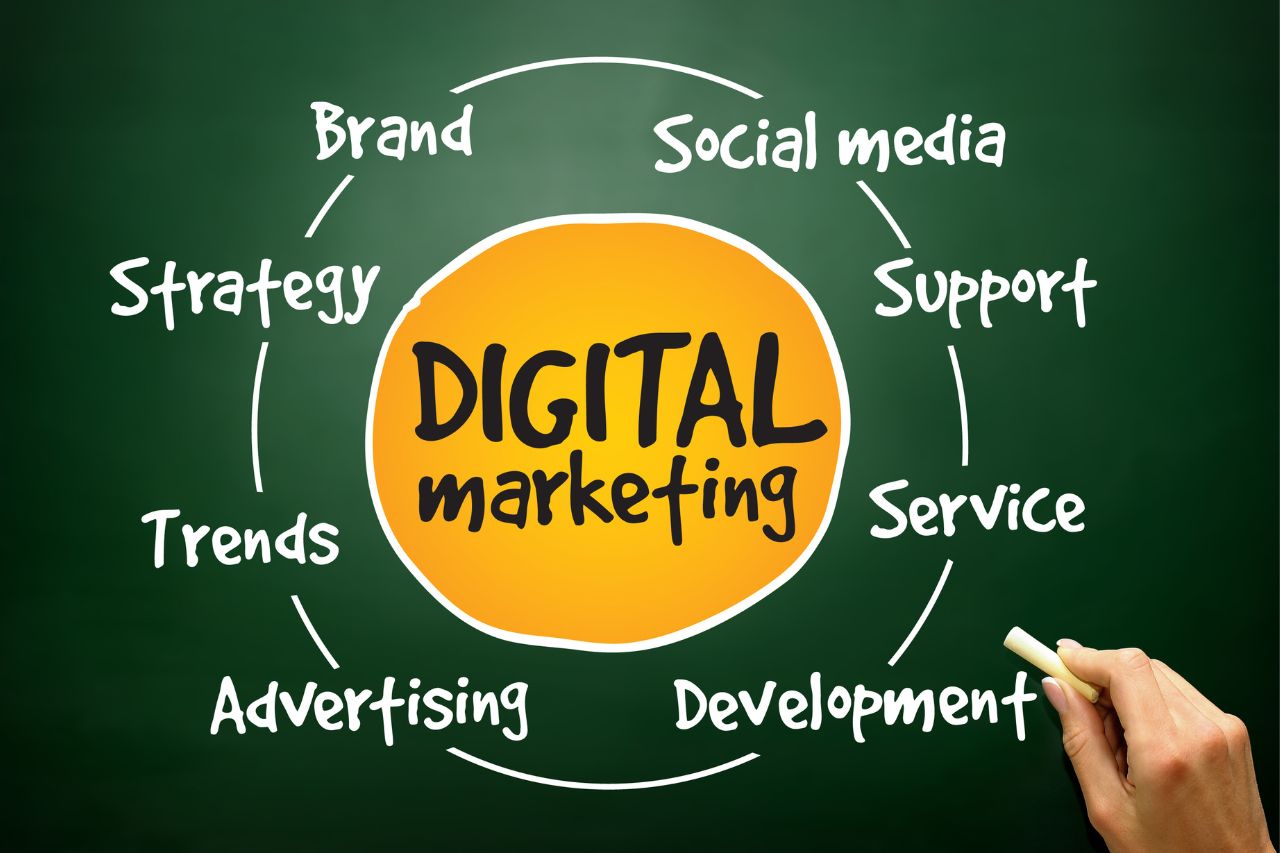In today’s digital marketing landscape, businesses are constantly looking for ways to drive traffic to their websites and generate leads. Among the most effective methods to achieve this goal are Search Engine Optimization (SEO) and Pay-Per-Click (PPC) advertising. Both are critical components of a comprehensive digital marketing strategy, but they operate in fundamentally different ways. While SEO focuses on organic search rankings, PPC is a paid method of driving traffic through advertisements.
As a Performance Marketing Specialist with over 15 years of experience, I have helped businesses of all sizes harness the power of both SEO and PPC to achieve measurable results. In this blog post, we’ll explore the differences between SEO and PPC, their benefits, drawbacks, and how you can decide which approach is best for your business in 2024.
What is SEO?
SEO refers to the practice of optimizing a website to rank higher in organic (unpaid) search engine results. The ultimate goal of SEO is to increase the visibility of a website in search engine results pages (SERPs) to attract organic traffic. SEO strategies involve several tactics, such as improving website content, optimizing page speed, using appropriate keywords, and building backlinks.
Key Elements of SEO:
- On-page SEO: Optimizing individual pages of your website by enhancing the content, using relevant keywords, and improving the user experience (UX).
- Off-page SEO: Building backlinks from other websites to improve your website’s authority and relevance.
- Technical SEO: Ensuring that your website’s infrastructure (e.g., site speed, mobile-friendliness, secure connection) is optimized for search engines and user experience.
- Local SEO: Optimizing for location-based searches, such as businesses targeting a specific geographic region.
SEO is a long-term strategy. It typically takes several months to see tangible results, but once your website starts ranking well, it can continue to drive traffic for an extended period.
What is PPC?
PPC is a form of paid advertising where businesses pay a fee each time their ad is clicked. This type of advertising appears on search engine results pages, social media platforms, and other websites. Google Ads is one of the most popular platforms for PPC advertising. With PPC, you can bid for keywords relevant to your business, and when users search for those keywords, your ad appears at the top of the search results or on a display network.
Key Elements of PPC:
- Keyword Research: Identifying relevant keywords and bidding on them to have your ads shown to users searching for those terms.
- Ad Copy: Writing compelling ad copy that encourages users to click on your ad.
- Landing Pages: Ensuring that the landing page users arrive at after clicking on the ad is optimized for conversions.
- Budget Management: Setting a daily or monthly budget to control how much you spend on PPC ads.
- Bid Strategy: Choosing the best bidding strategy (e.g., Cost Per Click, Cost Per Acquisition) to maximize ROI.
PPC provides more immediate results compared to SEO, as ads can start driving traffic as soon as they are launched. However, it is a paid strategy, and the traffic stops when the ads stop running.
SEO vs. PPC: Key Differences
Both SEO and PPC have their advantages and are essential in a well-rounded digital marketing strategy. Let’s break down the key differences between the two:
1. Cost Structure
- SEO: SEO is an organic strategy that doesn’t require direct payments to search engines. The costs are typically associated with time, effort, and resources needed to optimize the website, such as hiring SEO experts or investing in tools.
- PPC: PPC is a paid advertising strategy where you pay each time someone clicks on your ad. The cost depends on factors like keyword competitiveness, industry, and the bidding strategy you choose.
2. Time to See Results
- SEO: SEO is a long-term strategy. Depending on the competitiveness of your industry, it can take anywhere from a few months to a year to see significant improvements in your search engine rankings.
- PPC: With PPC, you can see immediate results as soon as the campaign is live. Your ad will appear in the search results or display networks instantly, and you can start driving traffic right away.
3. Traffic Quality
- SEO: Organic traffic driven through SEO is typically more sustainable and tends to attract users who are genuinely interested in your content, products, or services. Since users have clicked on a search result based on their interests, they are more likely to engage with your website.
- PPC: While PPC can also attract high-quality traffic, the users are clicking on an ad, which can sometimes be seen as less trustworthy compared to organic search results. However, PPC allows for precise targeting to attract your ideal audience.
4. Long-Term vs. Short-Term Impact
- SEO: SEO efforts can pay off over time, providing long-term traffic even after the work is done. High-ranking pages can continue to drive traffic for months or even years.
- PPC: PPC, on the other hand, provides short-term results. As soon as your budget runs out or your ads are paused, the traffic stops. However, it offers control over your traffic and can generate quick returns.
5. Control and Flexibility
- SEO: With SEO, you have less control over the search engine algorithms. Google, for instance, constantly updates its algorithm, which can impact your rankings.
- PPC: PPC gives you complete control over your ad campaigns. You can set your budget, select specific keywords, adjust bids, and track performance in real-time.
Which is Right for You?
Both SEO and PPC are powerful marketing strategies, but deciding which one is right for you depends on your business objectives, budget, timeline, and resources. Let’s examine different scenarios where each method might be ideal:
When to Choose SEO:
- Long-Term Growth: If you’re looking for sustainable, long-term traffic, SEO is the way to go. It requires more effort upfront but pays off in the long run with ongoing organic traffic.
- Tight Budget: If you have limited advertising budget, investing in SEO might be a better option. Although it takes time, organic traffic is free once you rank well.
- Building Trust: Organic search results tend to have higher trust from users. If trust and credibility are key factors for your business, SEO should be a priority.
- Content-Driven Business: If your business heavily relies on content (e.g., blogs, articles, tutorials), SEO can help you optimize and attract organic traffic over time.
When to Choose PPC:
- Immediate Results: If you need to drive traffic and generate leads quickly, PPC is the best option. You can see instant results once your ads go live.
- Testing Keywords: PPC is an excellent way to test which keywords work best for your business before committing to an SEO strategy. It provides valuable data on which search terms drive the most conversions.
- Targeting Specific Audiences: PPC allows for highly targeted campaigns, where you can focus on specific geographic regions, demographics, or behaviors. This is ideal for businesses with a niche audience.
- Product Launch or Seasonal Campaigns: If you’re running a time-sensitive campaign, such as a product launch or a seasonal promotion, PPC can generate the immediate attention you need.
Combining SEO and PPC
In most cases, the best approach is to combine both SEO and PPC strategies. While SEO will provide long-term organic traffic, PPC will give you immediate visibility and control. Many businesses use PPC to supplement their SEO efforts, especially when entering new markets or promoting seasonal products. By integrating both approaches, you can dominate the search results, with SEO providing the organic foundation and PPC ensuring your brand stays visible at the top.
Conclusion
In the battle of SEO vs. PPC, both strategies have their strengths and weaknesses. SEO offers long-term organic growth with a focus on building credibility and authority, while PPC provides immediate visibility and the ability to target specific audiences. As a Performance Marketing Specialist, I’ve seen firsthand how businesses can benefit from a balanced approach, using SEO to build a solid organic foundation and PPC to drive quick results and test new campaigns.
When deciding which strategy is right for you, consider your business goals, budget, timeline, and resources. Whether you choose SEO, PPC, or both, the key is to continuously monitor, analyze, and optimize your efforts to achieve the best possible results. In the fast-evolving digital landscape of 2024, a comprehensive marketing strategy that blends both SEO and PPC will set your business up for success.
At Global Info Edge, we specialize in performance marketing, lead generation, conversion rate optimization, and more. With over 15 years of experience in Google Ads, Bing Ads, and Facebook Ads, we help businesses navigate the complexities of both SEO and PPC to drive measurable results. If you’re ready to take your digital marketing strategy to the next level, reach out today!







